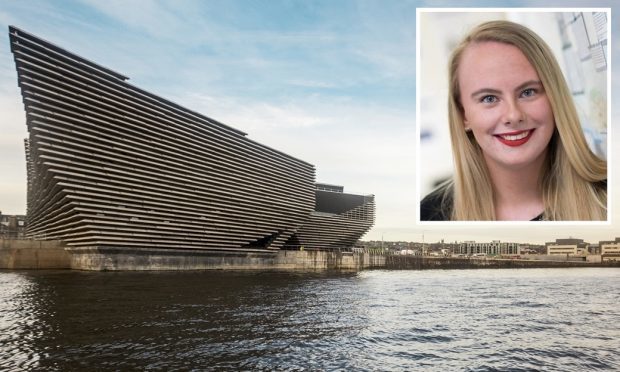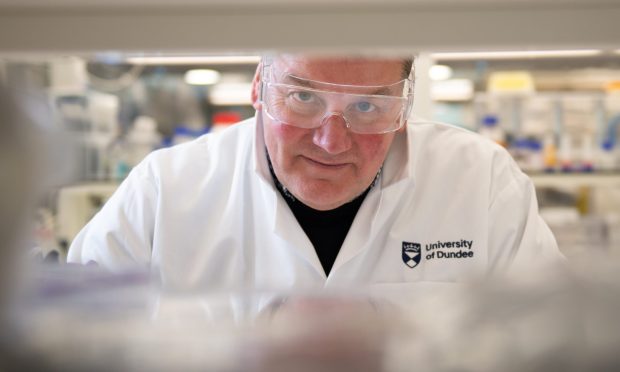It’s a £1 billion project spanning 30 years and covering 8km of some of Scotland’s most stunning riverside scenery.
But is the regeneration of Dundee’s waterfront delivering on its promise of improving the fortunes of people right across the city?
That is the question at the heart of a new research project by a Dundee University student, and she is hoping the city’s residents will take up the invitation to share their views.
Work is already well under way on the ambitious plans to transform the stretch from Riverside to Dundee Port for leisure and business use.
With 2018 set to be a landmark year in the 30-year project, capped by the opening of the V&A Museum in September, geography honours student Emma Mills, 23, is asking residents for their views on how the work is benefiting the city as a whole.
While the regeneration efforts have been widely praised across the UK and beyond, leading to a series of high-profile international media profiles recommending the city as a place to visit, there have also been some claims locally that the focus on the waterfront has left other parts of Dundee neglected.
The strength of feeling the project can generate was shown recently when hundreds of people signed a petition demanding the city council abandons its plans to build a multi-storey office block directly across from the V&A.
These are all issues Dundee-born Emma is keen to explore in her research, and she is hoping people will take the time to share their views.
Emma said: “The city is trying to revitalise the waterfront and the city centre surrounding areas to attract people by improving different types of social and cultural amenities.”
She said the efforts have been hailed “as a positive and much needed step towards a positive socio and economic enhancement” but she added that some believe “little thought is given to that of the ‘outsider’ community groups in which encompass the surrounding areas of Dundee.”
To analyse local feeling, Emma has created an online questionnaire that explores issues including people’s awareness of the project, their attitude towards its cost and how it might affect community groups across Dundee.
She said the reaction so far has been very positive, and most respondents see the project as “great thing”. However, she says there is also evidence that some people remain sceptical about how the benefits will be shared across all areas of the city.
Lynne Short, convener of Dundee City Council’s city development committee, said: “I am really pleased that there is so much academic interest in the waterfront project and its future success.
“It has always been the plan from the very beginning that Dundee Waterfront should be an economic driver for the whole city. Jobs, living space and a leisure environment for everyone are key to its success.”
Emma is in the fourth year of her degree and the results of the anonymous survey will help to inform her dissertation.
She says organisations in the city have already expressed an interest in seeing the results of her research and she hopes to be able to share her findings once her studies are complete later this year.
To take the survey, visit https://demo-account.onlinesurveys.ac.uk/dundees-waterfront-regeneration-perceptions-of-local-co.










